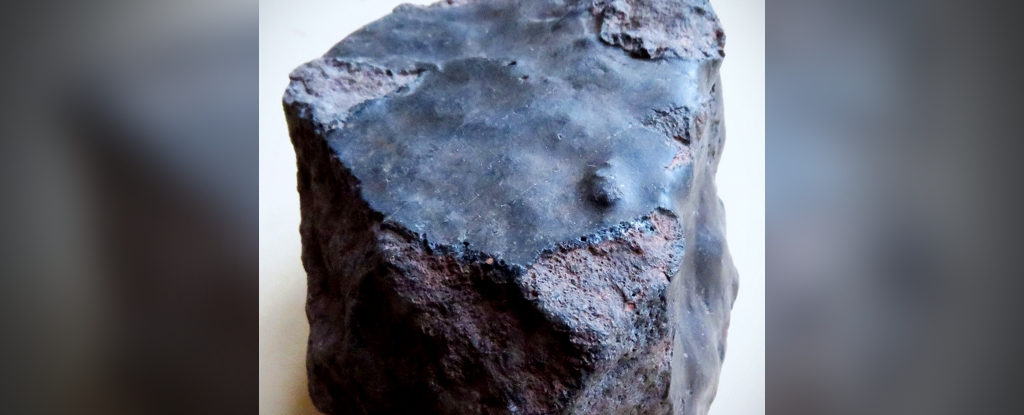Scientists are trying to make sure that a black rock discovered in Morocco in 2018 left Earth’s gravity, went into space, and then returned to us.
If true, this rock (officially known as “Northwest Africa (NWA) 13188”) [Északnyugat-Afrika 13188]It will be the first meteorite, at least that we know of, to make this extraordinary run, according to reports Science alert.
The fact that the 646-gram “space bouncing rock” may have made a trip through the sky isn’t the only weird thing about the story. NWA 13188’s bubbling appearance, crystalline texture, and exact chemical composition are strongly suggestive of rocks that form here on Earth from molten minerals produced by volcanoes near subducting ocean plates.
If we consider the mixture of oxygen isotopes and trace elements, it becomes highly suspicious that this rock is a meteorite, at least not a typical space rock.
Photo: Jerome Gacheca. (public domain image)
According to Jerome Gacheca, a geophysicist at the French National Center for Scientific Research, who presented his team’s findings at the Goldschmidt Geochemistry Conference in France, the rock has been on an interesting journey, during which it has spent a significant amount of time in orbit.
The concentrations of helium-3, beryllium-10, and neon-21 can only be explained by exposure to cosmic rays. This radiation is found in outer space, but it is largely blocked by the Earth’s magnetic field. Although the concentration of these isotopes was lower than that of other meteorites, it was much higher than that of other terrestrial rocks.
This indicates that NWA 13188 has been exposed to galactic cosmic rays for a short but significant period of time, up to a few tens of thousands of years. NWA 13188 also has a glassy “melting crust,” indicating that it may have melted during its entry into Earth’s atmosphere.
All of this “rules out that NWA 13188 is a ‘fake’ man-made meteorite,” Gacheca and colleagues wrote. “Therefore, we consider NWA 13188 to be a meteorite that erupted from Earth and later returned to the same place,” they concluded.
Worth reading:























![Fera: The Sundered Tribes will also be released on consoles [VIDEO]](https://thegeek.hu/wp-content/uploads/sites/2/2024/05/thegeek-Fera-The-Sundered-Tribes-1.jpg)

















